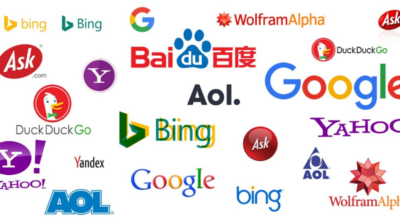Judging by the questions on Stack Overflow, you can totally understand that two of the most popular low code development platforms (LCDP) that are used by developers around the world are Flutter and Swift. They are primarily used to develop iOS applications. But before we move forward with the differences between these two platforms, we must first understand what they are.
There are two different approaches for developing apps for iOS. One is a cross-platform mobile app development SDK, which is Flutter. The other is a native development language used to create apps, Swift. There is a raging debate about which approach is the best for app development. There are various pros and cons to both of them and in this blog, we will look at Flutter vs Swift and how different is app development in these two approaches. We will also look at which one is better, Flutter or Swift.
WHAT IS SWIFT?

In 2014 Apple launched 1.0 of Swift, their very own object-oriented programming language that they developed in-house. This programming language had quite the thing going for it and was primarily created for designing modern applications. Swift is open-source and uses compiling. It is a multi-paradigm programming language that is used in iOS, macOS, tvOS, Linux, watchOS and z/OS. Swift works with Apple’s Cocoa Touch framework and Cocoa framework. Swift is compatible with Apple’s Objective-C code. Swift is specifically for developing iOS applications found in the Apple App Store for iOS operated mobile application supporting devices and can be called native technology.
WHAT IS FLUTTER?

A cross-platform, open-source framework, which is a software development kit (SDK), was launched by Google in 2015 by the name Flutter. Flutter is basically used to develop cross-platform applications for every known platform there is including Mac OS as well as Google’s Fuchsia. While Swift itself is a programming language, Flutter uses Dart as the programming language. While cross-platform application development frameworks are generally frowned upon because of their bad functionality as well as stability, Flutter has managed to stay on top because of its excellent performance. Flutter is slowly but surely changing the app development landscape as cross-platform app development is gaining in popularity. Flutter can be used to develop both iOS apps found in the Apple App Store and can also be used to develop applications for Android apps, found in the Google Play Store.
So, to answer the question “should I learn Swift or Flutter?”, Here is the full comparison between Swift and Flutter.
- ONBOARDING PROCESS – The onboarding process of both the app development platforms are different. If the Flutter specialists are to develop iOS apps then they require XCode and the Android Studio. They can also develop apps with any IDE.
For Swift developers, the process is quite simple. The developer simply needs a macOS machine with XCode installed in it.
Swift is clearly the winner here but then again having a macOS machine instead of being able to use any machine to develop apps is kind of intrusive and hinders development outside the macOS ecosystem.
- POPULARITY – In terms of popularity, Flutter is the clear winner with more than a hundred thousand Stars on GitHub, with Swift lagging behind at just fifty thousand stars. There is a simple reason for this and the simple reason is that Flutter can be used outside the iOS environment. The main job of Flutter is to be cross-platform and because of this, it encourages developers from every OS and every environment to use Flutter. Swift on the other hand is exclusive to the iOS environment and therefore developers with any other OS cannot use it. While this may be good for quality control, this hinders diversification and thereby discourages development.
- DEVELOPMENT TIME – Swift is the clear winner in development time as it is made specifically for iOS. If we talk about clean build speeds, initially it may look like Flatter is nearly the same in development time as Swift but in most instances, Swift outperforms Flutter in the later developmental stages. There are merits to having something specifically designed for one platform and thereby its compatibility with that platform will always be better than a cross-platform alternative. However, if someone is looking for a quick and easy cross-platform solution that can get the job done without having to find a Swift developer then Flutter is the way to go.
- APP SIZE – When we talk about app installation size then Flutter apps tend to be bigger in size than Swift apps simply because Flutter uses the Dart engine and Dart apps have minimum constraints on how small the app can be. Regarding Swift, it depends on the app but usually, Swift apps are smaller in size than Flutter apps and Swift apps don’t have any size constraints.
- DEVELOPMENT BUDGET – Budget is one of the most important considerations that we have to look at if we are to compare different techniques for app development. Apps are developed by developers and they required salaries. Generally speaking, Swift app developer salaries tend to be nearly two times higher than Flutter app developer salaries. This may be due to the fact that Swift developers are rare to come by and therefore there aren’t as many developers in the market thereby increasing the demand as well as their salaries. Flutter developers are easy to come by and are an excellent option if the company is looking at this from a budget perspective. And Flutter developers are useful elsewhere rather than just in iOS app development.
- PERFORMANCE – When it comes to the question of Flutter vs Swift’s performance, Swift outperforms Flatter apps by quite a margin and this is expected. Swift outperforms Flutter simply due to the fact that native iOS development will always produce results that are better than cross-platform options. From smooth to fast as well as reliable app performance can be expected from any native framework and that is the case with Swift. However, if you are under a budget constraint and you have Flutter developers on hand and you need to choose between not developing the iOS app or developing it with a few compromises, we think most will choose the latter option.
Therefore, to conclude, Swift outshines Flutter in most cases and this is the result every developer knows and expects simply for the fact that Swift had been developed with iOS in mind and Flutter is a cross-platform option. But let us not deny the importance of platforms like Flutter because if you were to choose between not developing the iOS app or having to compromise with performance and stability but yet being able to develop the app then 9 times out of 10 the developers would choose Flutter. If you are someone who is willing to have their own iOS app and would like a reliable iOS software development company to handle the development then we at ThinkToShare are here for you. We offer both Swift and Flutter options for app development but we would always suggest our clients get the app developed through Swift. We are the fastest growing web development company in Kolkata with experienced teams deployed in Android and iOS app development.
META – iOS app development depends on Swift and Flutter as the two most popular low code development platforms (LCDP). Swift is a native programming language by Apple, Flutter is a cross-platform framework by Google.









